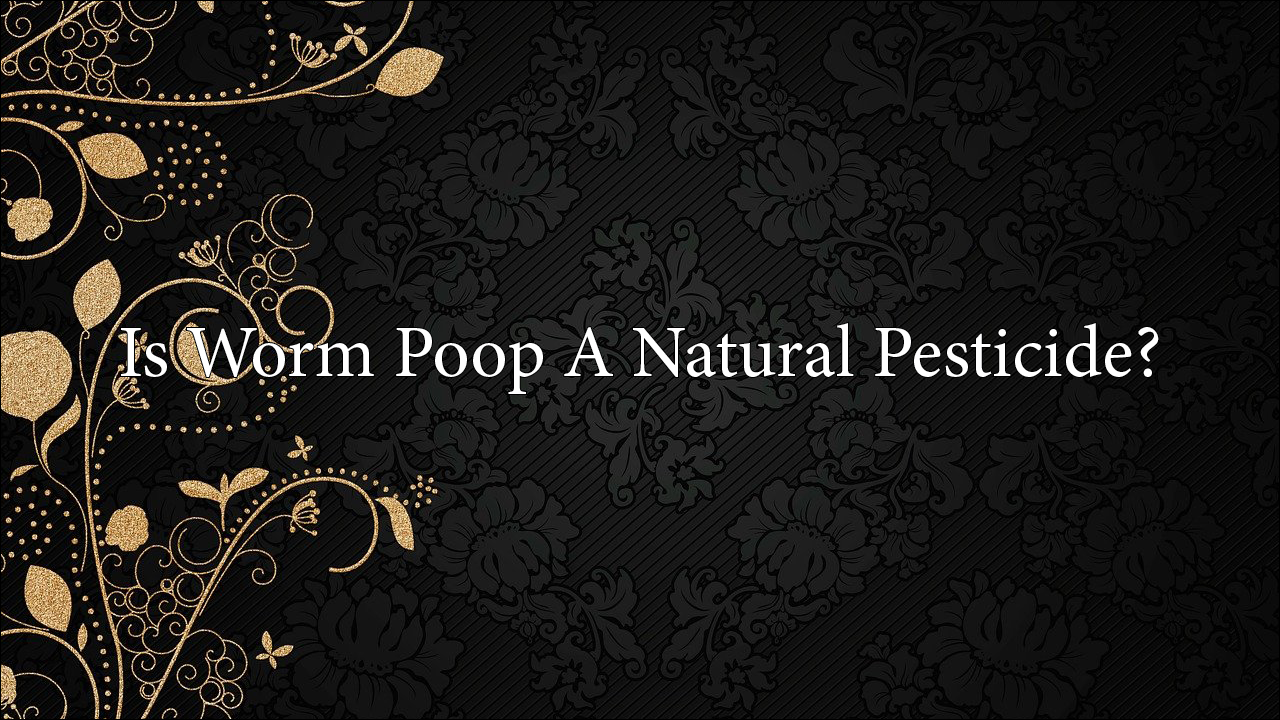
Unearthing the Potential of Vermicompost
“In the grand tapestry of nature, even the humblest creatures can play significant roles. Enter the worm – a seemingly inconspicuous organism that not only turns soil but also produces a remarkable substance known as vermicompost, often dubbed ‘worm poop.’ As our understanding of sustainable agriculture grows, so does our curiosity about the natural world’s hidden gems. Could worm poop hold the key to an eco-friendly and effective pesticide? Let’s delve into this intriguing topic and unearth the potential of vermicompost as a natural pesticide.”
The Science Behind Vermicompost
Vermicompost is the end product of the breakdown of organic matter through the combined efforts of earthworms and microorganisms. This process, known as vermicomposting, results in a nutrient-rich material that enhances soil fertility and structure. The resultant substance boasts a host of benefits for plant growth, but recent research suggests that its applications might extend beyond being a soil conditioner.
Vermicompost as a Pesticidal Powerhouse
How does vermicompost work as a pesticide?
Vermicompost contains a range of bioactive compounds that have demonstrated pesticidal properties. Some of these compounds act as repellents, disrupting the feeding and reproductive behaviors of pests. Others possess direct toxic effects on pests, potentially targeting their nervous systems or physiological processes. These compounds arise from the breakdown of organic matter and the interactions between earthworms and microorganisms, resulting in a dynamic concoction of natural defense mechanisms.
Is vermicompost a broad-spectrum pesticide?
Vermicompost’s pesticidal effects are often specific to certain pests. Different compounds present in vermicompost might target different types of insects or pathogens. This specificity can be advantageous as it reduces the impact on non-target organisms, an essential consideration for sustainable pest management.
What about its environmental impact?
Compared to synthetic chemical pesticides, vermicompost has the potential to be more environmentally friendly. The compounds found in vermicompost are typically biodegradable and have shorter persistence in the environment. Additionally, vermicompost enriches the soil, improving overall ecosystem health and reducing the need for external inputs.
Challenges and Considerations
Standardization of vermicompost quality
One of the challenges in utilizing vermicompost as a natural pesticide lies in ensuring consistency and efficacy. The composition of vermicompost can vary based on factors such as feedstock, earthworm species, and composting conditions. Establishing standardized production methods and quality control measures is crucial to harness its pesticidal potential consistently.
Integration into existing agricultural practices
Integrating vermicompost-based pest management into conventional agricultural systems requires careful planning and adaptation. Farmers need guidance on application rates, timing, and compatibility with other farming practices. Research in this area is essential to optimize the benefits while minimizing potential drawbacks.
Economic feasibility
As with any new approach, the economic viability of using vermicompost as a pesticide plays a significant role. The costs associated with large-scale vermicompost production, application, and monitoring must be balanced against potential gains in crop yield and pest reduction.
Looking Ahead: Research and Applications
The potential of vermicompost as a natural pesticide has sparked interest among researchers, farmers, and environmentalists alike. Ongoing studies aim to unravel the specific compounds responsible for pesticidal effects, refine production techniques, and assess long-term impacts on soil health and biodiversity.
As the world seeks sustainable alternatives to conventional agricultural practices, vermicompost emerges as a promising candidate. Its dual benefits of soil enhancement and pest control could offer a holistic solution to modern agriculture’s challenges.

Frequently Asked Questions (FAQs)
Q1: Can vermicompost completely replace synthetic pesticides?
A1: While vermicompost shows great potential, it might not entirely replace synthetic pesticides. Instead, it could be integrated into integrated pest management (IPM) strategies, reducing reliance on synthetic chemicals.
Q2: Is vermicompost safe for humans and animals?
A2: Generally, vermicompost is considered safe due to its natural origins. However, proper handling and application are crucial to prevent contamination of crops or water sources.
Q3: Can vermicompost-based pest management work in all types of agriculture?
A3: The effectiveness of vermicompost-based pest management might vary depending on the crop, region, and farming practices. Tailoring approaches to specific contexts is essential.
Q4: How can farmers adopt vermicompost-based pest control?
A4: Farmers can start by experimenting on a small scale, gradually integrating vermicompost applications into their routine. Collaboration with agricultural extension services and researchers can provide valuable guidance.
Q5: Does vermicompost have other agricultural benefits besides pest control?
A5: Absolutely. Vermicompost enhances soil structure, moisture retention, and nutrient availability. It promotes overall plant health and can lead to improved crop yields.
The world of agriculture stands at a crossroads, seeking sustainable alternatives that balance productivity, ecological health, and human well-being. Vermicompost, with its dual role as a soil enhancer and potential natural pesticide, offers a promising avenue for addressing these complex challenges. As research continues to unveil the secrets within worm poop, farmers and researchers alike are excitedly digging into the possibilities it holds. With proper understanding, application, and refinement, vermicompost could truly emerge as a natural powerhouse in the realm of pest management.
Worm poop is nature’s secret to vibrant gardens and sustainable farming practices.